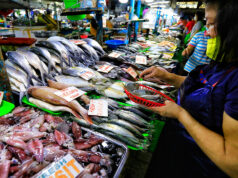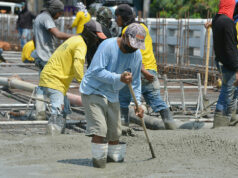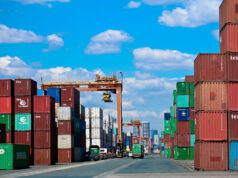SEC urges companies to issue more green bonds
THE corporate regulator wants more companies to issue green and sustainable bonds, where the proceeds will be exclusively applied to eligible environmental and social projects.
In a statement over the weekend, the Securities and Exchange Commission (SEC) said the Philippines was expected to join its peers in the Association of Southeast Asian Nations (ASEAN) in spurring the growth of sustainable debt markets.
“The rate of growth in Asean appears to show the necessary foundations for the development of such a green/sustainability debt market have indeed been laid,” SEC Commissioner Ephyro Luis B. Amatong said in the statement.
These foundations include a clear set of guidelines for issuers and which local and international investors recognize as holistic and reliable, he said.
The statement was from Mr. Amatong’s speech at the Asean+3 Bond Market forum meeting last week, where he reported that more than $3.8 billion worth of bonds had been sold under the Asean Green and Sustainability Bond Standards in 2019.
The Philippines had 15 bond issues from companies and banks worth $3.04 billion under the Asean Green and Sustainability bond market.
The SEC cited Rizal Commercial Banking Corp. (RCBC) for having issued two sustainability bonds and one green bond worth $742 million.
Bank of the Philippine Islands issued one green bond worth $300, while Development Bank of the Philippines sold a green bond worth $352 million, the regulator said.
“We at Asean Capital Markets Forum see this as an opportunity for Asean countries, many of which have significant infrastructure development programs, to access as yet untapped sources of much needed financing,” Mr. Amatong said.
“Resilient and adaptable infrastructure is particularly important to those of us in Asean since we are particularly at risk to the impact of climate change,” he added.
Mr. Amatong in February last year said there was a strong demand for green bonds that local companies could take advantage of amid the government’s infrastructure push and after relaxed rules on bank bond issuance.
The SEC earlier said projects that could be funded by ASEAN green bonds include renewable energy, pollution prevention and control, clean transportation and climate change adaptation.
Mr. Amatong had said the Philippines was an ideal destination for sustainable investment given the country’s established renewable energy industry and significant infrastructure demand.
In his speech last week, Mr. Amatong noted that in the past two years, the Philippines had worked to adopt and release guidelines and standards on the issuance of sustainable bonds, such as the Asean Green Bond Standards, Asean Social Bonds Standards and Asean Sustainability Bonds Standards.
Its new corporate governance code for public companies and registered issuers also requires companies to start reporting nonfinancial performance and sustainability initiatives.
“All this is to say that we think that ASEAN is off to a good start in its sustainability journey,” Mr. Amatong said.
“But there is still so much we can do, and so much we need to do to realize our shared goal of sustainable economic growth in the real economy supported by sustainable capital markets,” he added. — DAV



